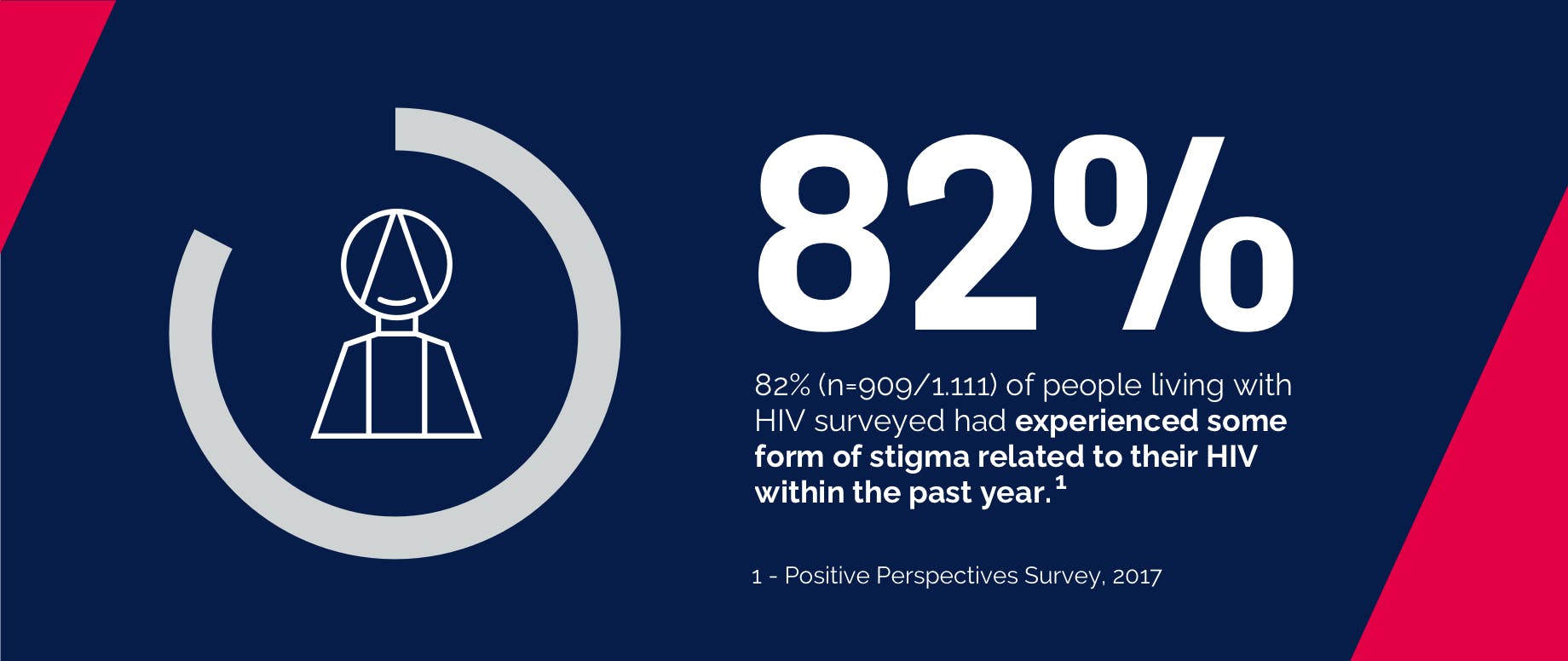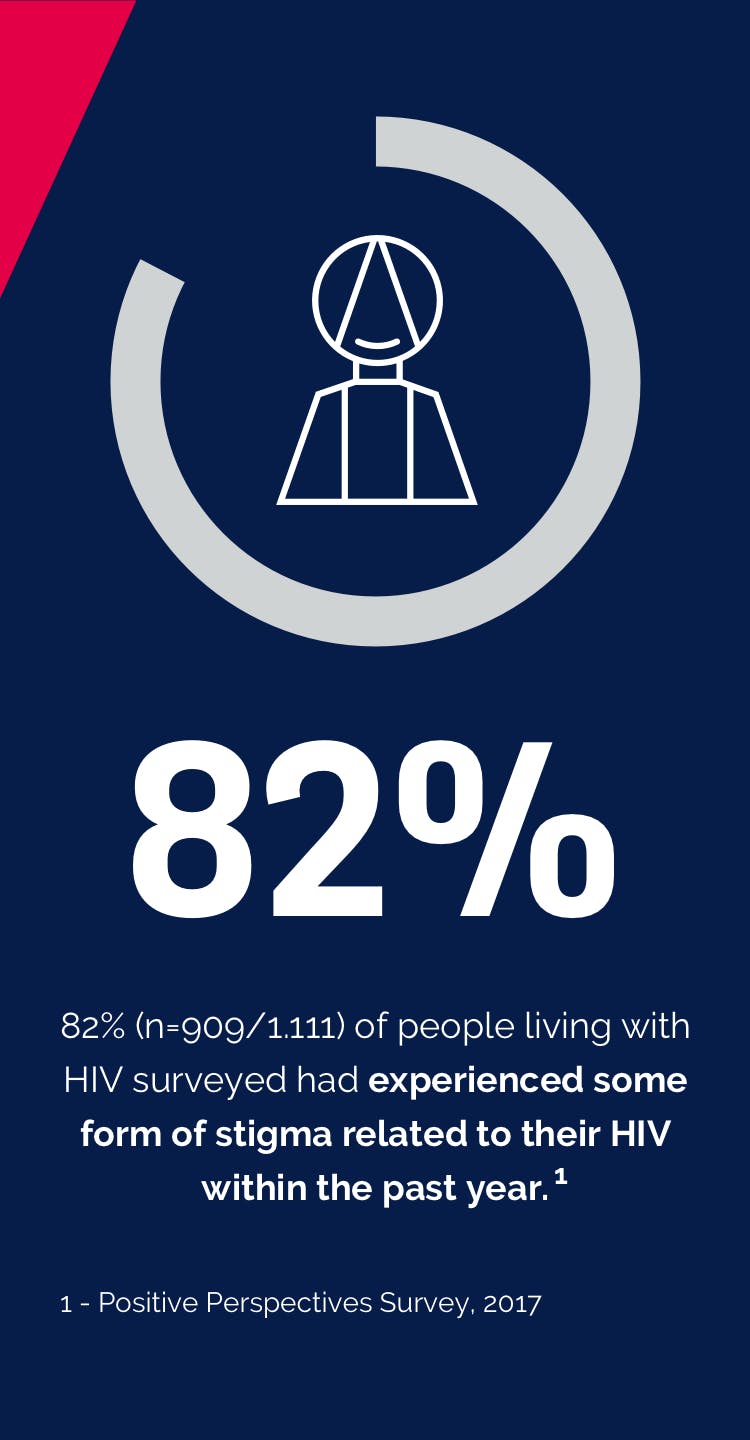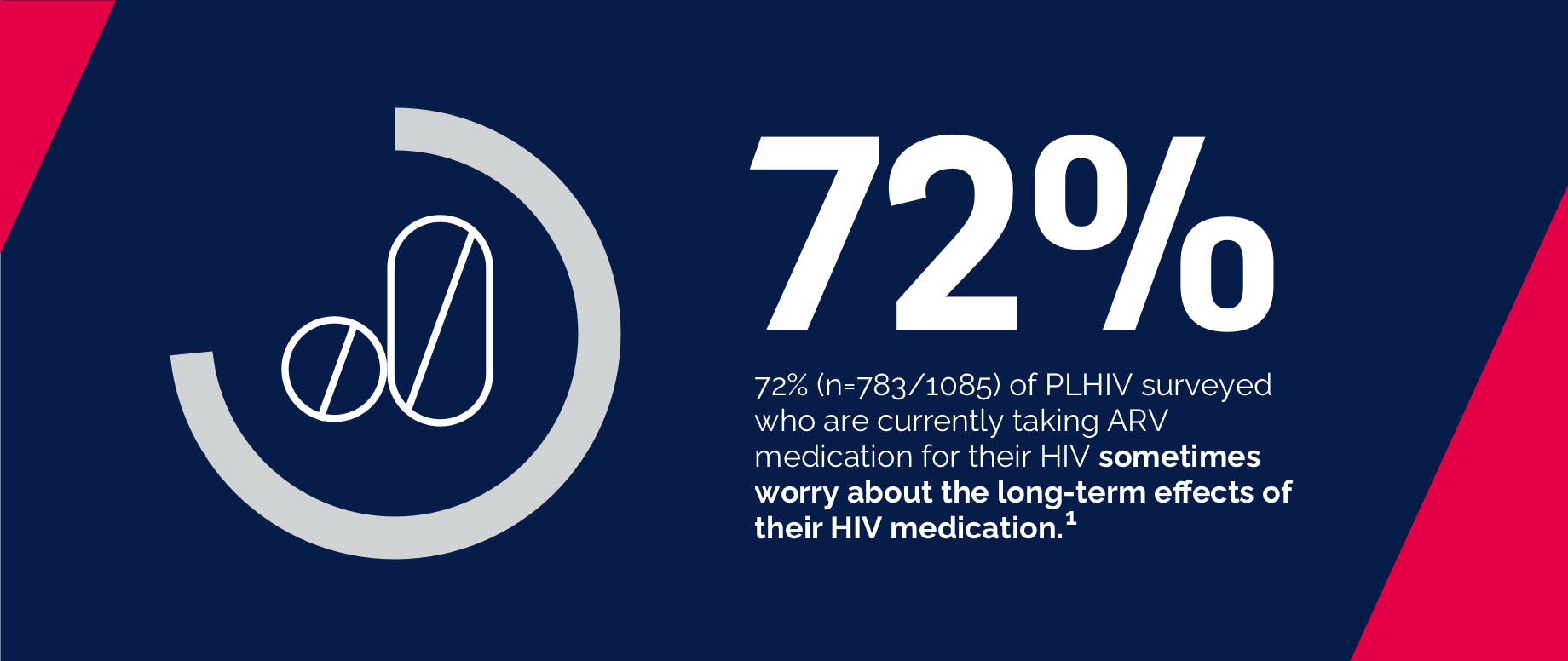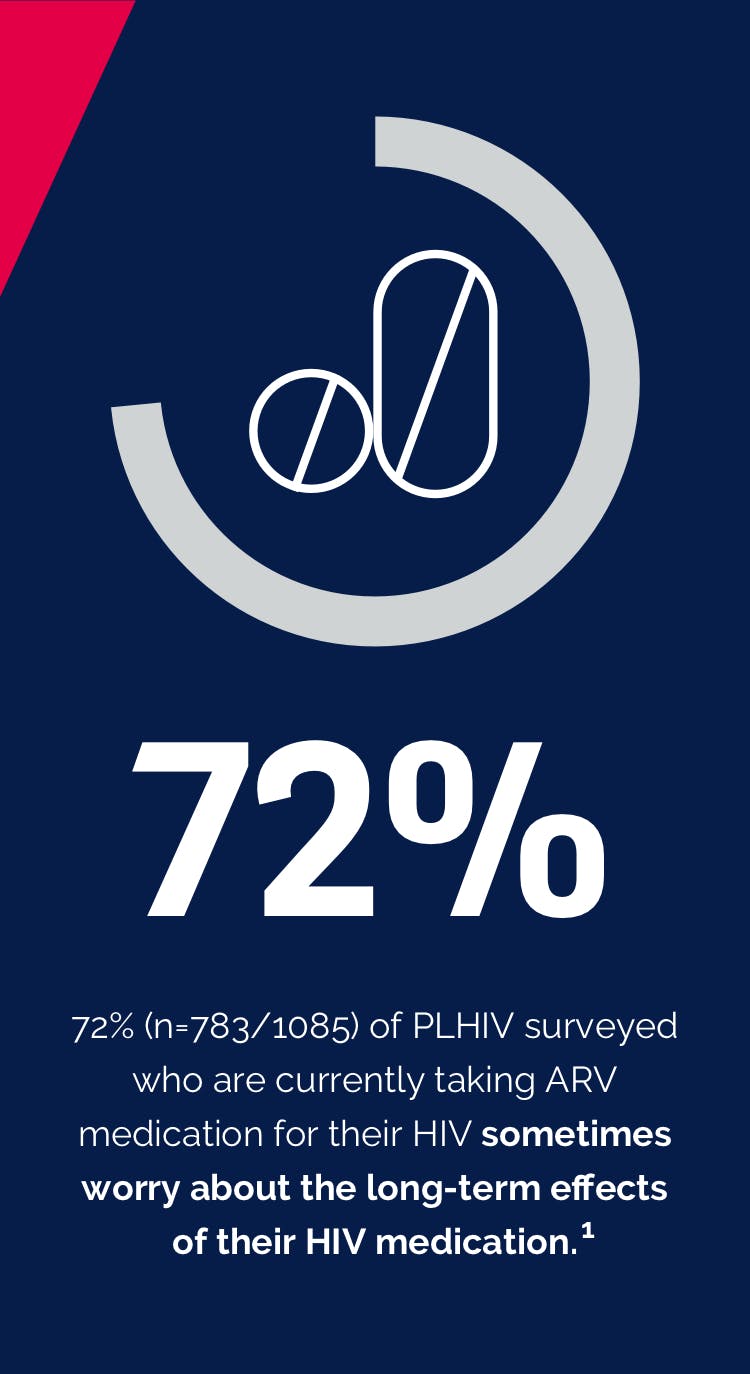EMOTIONAL CHALLENGES FOR PEOPLE LIVING WITH HIV

Science in HIV treatment has travelled long and far, but what about the emotional and stigma related challenges of living with HIV?
HIV has changed. Thanks to treatment advances, HIV has become a long-term health condition and many people living with HIV with access to treatment are now living longer, healthier lives than before. However, emotional challenges continue to impact many people’s day-to-day lives.
HIV stigma and discrimination
Despite treatment advances, stigma and discrimination remain a part of living with HIV. Having many guises, HIV stigma may be perpetuated through our laws and institutions, through communities, between individuals or by oneself in the form of self-stigma.
With these different levels of stigma to deal with, people living with HIV can sometimes experience heightened levels of emotional and psychological issues including fear, guilt, abandonment, lack of worth and harassment.1
In Positive Perspectives, an international survey that sought to further understand the experiences of people living with HIV, 82% (909/1,111) of respondents living with HIV had experienced some form of stigma or discrimination within the past year.1


“After I was diagnosed, and I became undetectable, I started dating again… the HIV shouldn't have been an issue, but it always seemed to be a barrier in relationships.”
Emotional impact of lifelong treatment
When managed effectively, HIV is a chronic disease, but this can mean taking HIV medicines comprised of multiple components continuously for as many as 40 years or more. Insights from the Positive Perspectives survey tell us that the emotional impact of daily, life-long treatment cannot therefore be underestimated. With regards to treatment, more than two thirds of respondents said that taking medication every day is a constant reminder of their HIV status, with 72% (783/1085) commenting that they sometimes worry about the long-term effects of their medication.1


“The treatment that I’m on now is keeping me healthy, keeping me happy, but I don’t know what the long-term effects of that medication are going to be.”
While new treatment options for people living with HIV aim to address worries about taking medicines over a lifetime, according to insights from the Positive Perspectives survey, having an understanding about HIV treatments can help people become more active participants in their HIV care and therefore feel more in control.1
It’s good to talk
Having the confidence to talk openly to a healthcare professional (HCP) about health issues of concern can also be empowering for a person living with HIV and lead to better adherence and improved treatment outcomes.2 Not only do informed conversations help individuals decide on which treatment is right for them, they can also support a person’s emotional well-being.2 Healthcare providers play very important roles in facilitating this dialogue.
“I can only communicate openly if the doctor has a basic understanding of how I behave in different situations and what my priorities in life are. The patient is thus considered a whole, and by that, I mean not only as a body that works, but also how I feel is considered’’
Despite the benefits of talking, nearly 30% (322/1,111) of people living with HIV in the Positive Perspectives survey were not very comfortable raising issues of concern around their HIV management with their healthcare professional.1
In addition to open discussions with a doctor or nurse, talking about HIV at a peer-to-peer or a wider, societal level, can help increase understanding of what it is to live with HIV, and help shift misperceptions.1
“I think my number one piece of advice to someone who has just been diagnosed would be to tell someone. I think the worst thing I did was to bottle it up.”
Addressing HIV stigma and emotional burden
There’s still a long way to go. Medically, HIV is pretty much sorted. It isn’t a cure, but it’s as good as.
But society… it’s got a long way to catch up’’
We must listen to those living with HIV and work to address the emotional challenges that they face, whether these be psychological, social or societal. Positive Perspectives survey respondents stated that ‘better education for the general public and better teaching in schools’ are the most important ways to address the issue of stigma.1
We at ViiV Healthcare are committed to providing continued education and to driving HIV disease awareness initiatives to tackle the causes of stigma. Eliminating the fear and misinformation that lead to stigma is key if we are to support people’s emotional wellbeing and help make HIV a smaller part of people’s lives.
- The Positive Perspectives Survey Report. 2017. Available at: https://edgesuite.gskstatic.com/Viiv/viivhealthcare/pdf_files/master/main/positive-perspectives-survey-report-finalcompressed.pdf. Last accessed: January 2021
- Chen, W. et al. Engagement with Health Care Providers Affects Self- Efficacy, Self-Esteem, Medication Adherence and Quality of Life in People Living with HIV. Journal of AIDS & Clinical Research 2013, 04(11)
YOU MAY ALSO BE INTERESTED IN:
Much has been done to reduce discrimination at an organisational level through anti-discrimination laws, but this varies across countries. More needs to be done to ensure that legislative frameworks are being implemented.
Data from the global Positive Perspectives study (Wave 2) highlight the unseen self-reported psychosocial impact that daily medication may have on some people living with HIV.
Advances in HIV treatment mean people living with HIV now expect longer life-expectancies. HIV care is no longer about just prolonging life, but also about ensuring good overall health-related outcomes.
NP-GBL-HVX-COCO-240047 September 2024
If you get any side effects, talk to your doctor, pharmacist, or nurse. This includes any possible side effects not listed in the package leaflet. You can also report side effects directly via the GSK Reporting Tool link https://gsk.public.reportum.com/. By reporting side effects, you can help provide more information on the safety of this medicine.
If you are from outside the UK, you can report adverse events to GSK/ ViiV by selecting your region and market, here.



